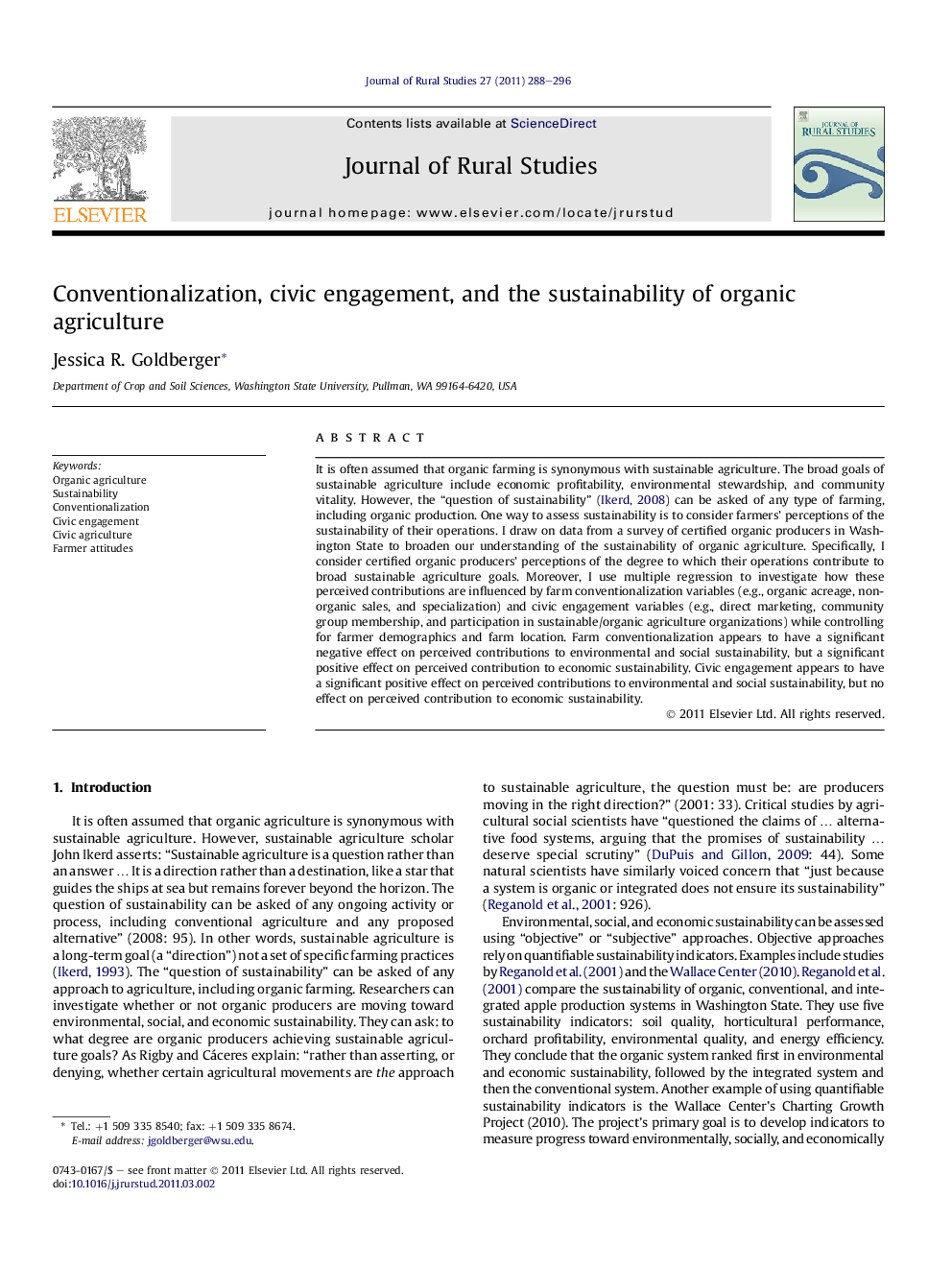| Article ID | Journal | Published Year | Pages | File Type |
|---|---|---|---|---|
| 92529 | Journal of Rural Studies | 2011 | 9 Pages |
It is often assumed that organic farming is synonymous with sustainable agriculture. The broad goals of sustainable agriculture include economic profitability, environmental stewardship, and community vitality. However, the “question of sustainability” (Ikerd, 2008) can be asked of any type of farming, including organic production. One way to assess sustainability is to consider farmers’ perceptions of the sustainability of their operations. I draw on data from a survey of certified organic producers in Washington State to broaden our understanding of the sustainability of organic agriculture. Specifically, I consider certified organic producers’ perceptions of the degree to which their operations contribute to broad sustainable agriculture goals. Moreover, I use multiple regression to investigate how these perceived contributions are influenced by farm conventionalization variables (e.g., organic acreage, non-organic sales, and specialization) and civic engagement variables (e.g., direct marketing, community group membership, and participation in sustainable/organic agriculture organizations) while controlling for farmer demographics and farm location. Farm conventionalization appears to have a significant negative effect on perceived contributions to environmental and social sustainability, but a significant positive effect on perceived contribution to economic sustainability. Civic engagement appears to have a significant positive effect on perceived contributions to environmental and social sustainability, but no effect on perceived contribution to economic sustainability.
